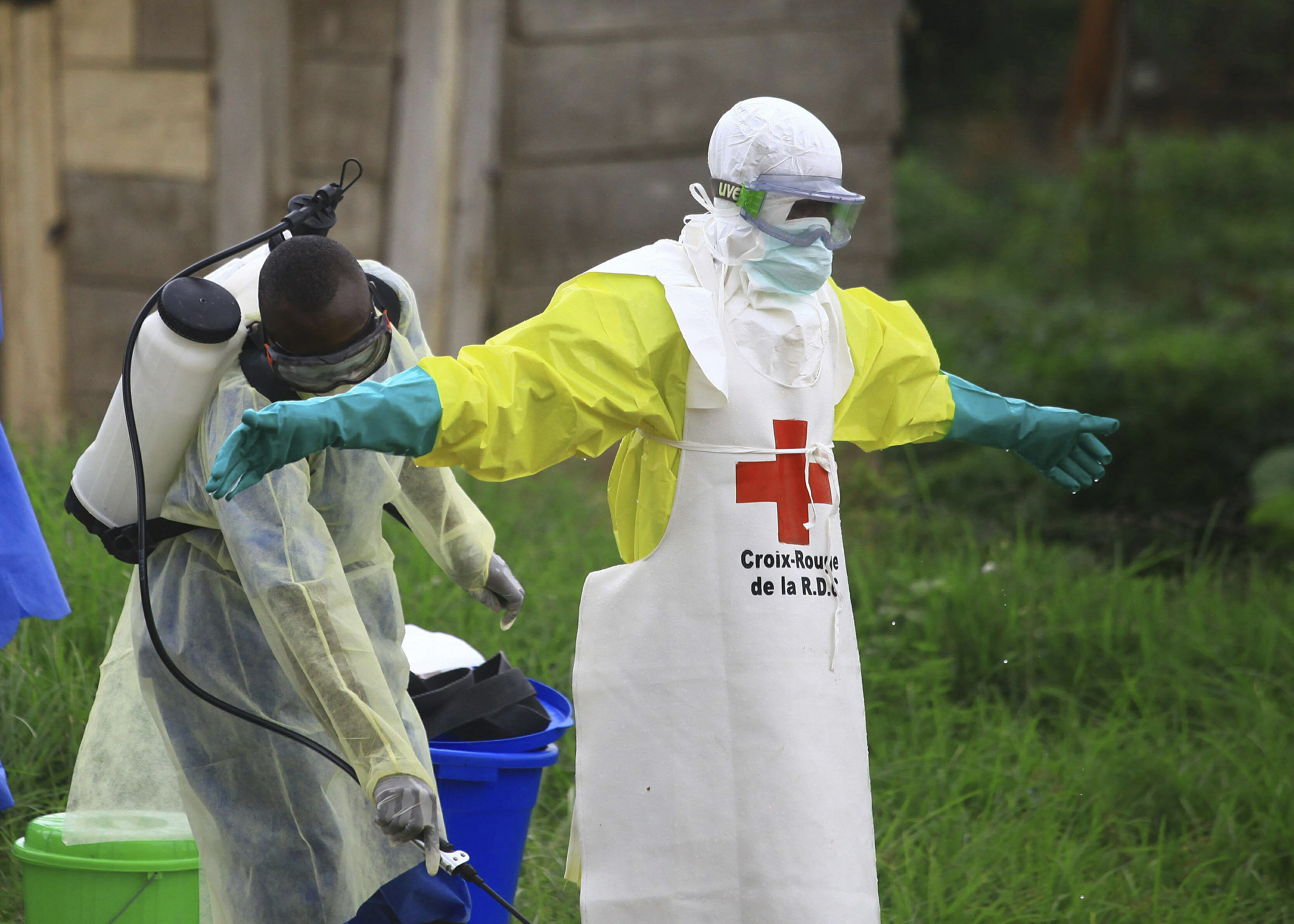
Latest Ebola Outbreak Could Be Declared Global Emergency
A top Red Cross official said Friday he’s “more concerned than I have ever been” about the possible regional spread of the Ebola virus in Congo after a new spike in cases.
Emanuele Capobianco spoke ahead of a key World Health Organization meeting taking place Friday about whether to declare the Ebola outbreak in northeastern Congo an international health emergency.
To be designated a public health emergency of international concern, a situation must be “serious, unusual or unexpected,” threaten to infect other countries and require “immediate international action.”
The Ebola outbreak in Congo announced on Aug. 1 has become the second-deadliest in history, behind the West African one from 2014-16 that killed more than 11,300 people.
Congo’s health ministry on Thursday reported 1,206 confirmed and probable cases, including 764 deaths.
Capobianco, head of health and care at the International Federation of Red Cross and Red Crescent Societies, cited Congolese health ministry statistics on Thursday showing 40 new cases over two days this week.
He called that rate unprecedented in this outbreak.
Ebola cases have spiked in recent weeks and officials are increasingly losing track of where the virus is spreading. Many new Ebola cases aren’t linked to previously identified patients, and numerous people are dying in the community rather than in health centers where they might be isolated to prevent further infection.
“The numbers are increasing. And so I’m more concerned than I have ever been of a potential regional spread,” Capobianco said while cautioning it was a “personal” assessment.
He cited a lack of trust about Ebola treatment in the community, which had never faced an Ebola outbreak before, and insecurity caused by rebel groups that has hurt aid efforts.
Previous global emergencies have been declared for the 2014 Ebola outbreak in Sierra Leone, Liberia and Guinea, the emergence of Zika virus in the Americas and the international attempt to eradicate polio. WHO was criticized for not declaring the 2014 Ebola outbreak an international emergency until nearly 1,000 people had died and the disease had spilled across borders.
Emergency declarations almost always boost global attention and donor funding. In recent weeks, WHO has noted it is woefully short of the $148 million it says is needed to fight Ebola for the next six months. It had received only $74 million as of mid-March.
WHO reported Thursday in a weekly Ebola bulletin that 57 health zones in Congo had reported new cases over the last three weeks.
The outbreak is occurring close to the borders of Uganda and Rwanda, with South Sudan not far away.
Tariq Riebl, who is based in a current Ebola hot spot, Butembo, for the International Rescue Committee, said a major obstacle to stopping the outbreak is that officials are simply unaware of how many Ebola cases there are.
“We’re discovering people when it’s way too late,” he said, noting numerous cases were buried in secret and never reported to authorities. “Given the average number of cases we’re seeing now, this is not going to be over for at least another six months or more.”
The Western Journal has reviewed this Associated Press story and may have altered it prior to publication to ensure that it meets our editorial standards.
Truth and Accuracy
We are committed to truth and accuracy in all of our journalism. Read our editorial standards.
Advertise with The Western Journal and reach millions of highly engaged readers, while supporting our work. Advertise Today.












